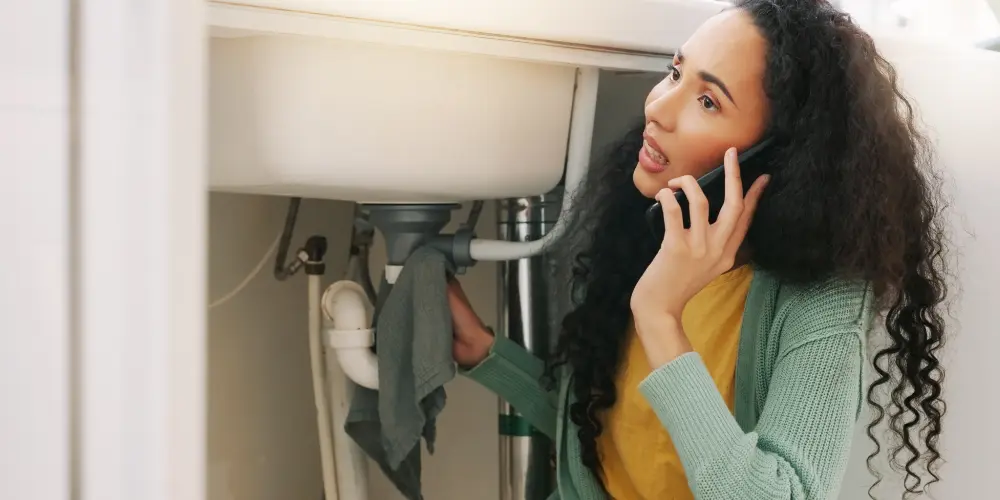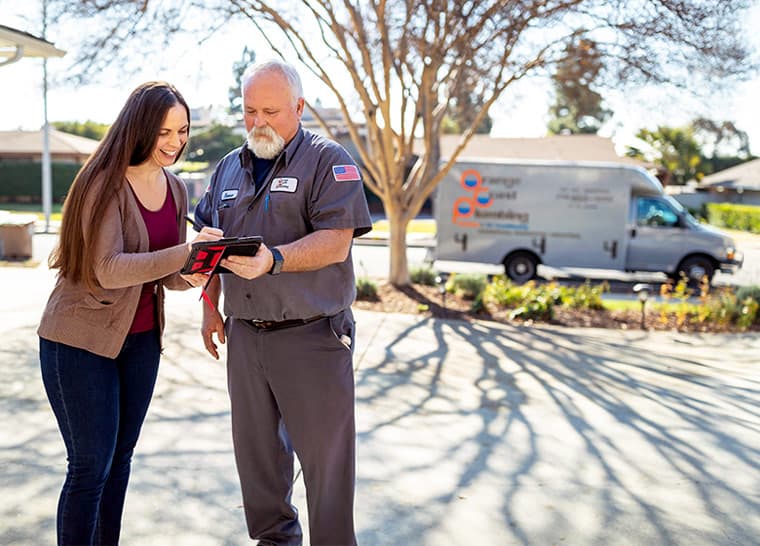Most of us don’t think about our plumbing until something goes wrong. It’s hidden behind walls and under floors, quietly doing its job. But when things go wrong, even minor issues can turn into expensive disasters. Catching problems early can save you both money and stress.
Here are 10 early warning signs your plumbing may need attention, and what to do about them.
1. Sudden Drops in Water Pressure
Have you ever turned on the shower full blast, and you’re left standing under a drizzle instead of a downpour? If this happens to just one faucet, it might be a clogged aerator. But if the whole house feels like it’s running on low pressure, that’s a red flag.
Possible culprits:
- Mineral buildup or debris in pipes
- Aging or corroded pipes
- Leaks in your water line
Don’t wait. Low pressure can lead to burst pipes if ignored.
2. Funky Smells or Weird Tastes in Your Water
If your tap water smells like rotten eggs or tastes off, don’t ignore it.
It could mean:
- Bacteria in stagnant pipes
- Sewage sneaking into your water supply
- Chemical contamination nearby
Ask your neighbors if they’re noticing the same issue. Call a plumber immediately if it’s just your house with the problem.
3. Discolored Water
Water from the tap should be clear. Something is not right if it’s coming out brown, yellow, or even greenish-blue.
What it might mean:
- Rusty or corroded pipes
- Sediment in your water heater
- Bacterial growth
Try running cold water for a few minutes. If it doesn’t clear up or only happens with hot water, get it checked out.
4. Smelly Drains
Drain smells are never pleasant and usually a sign of trouble. Different smells mean different things:
- Rotten egg = decomposing gunk
- Sewage = blocked sewer line
- Musty = mold
- Chemical = possible contamination
If a quick cleaning doesn’t solve the issue, it’s time to call in the pros.
5. Slow Drains Everywhere
One slow drain is most likely a simple clog. But if the drains in your kitchen and bathrooms are all slow, that’s a sign of a bigger issue.
Watch for:
- Multiple drains backing up
- Gurgling sounds
- Water coming up in places it shouldn’t
This usually points to a main sewer line problem, which is not a DIY job.
6. Mysterious Water Bill Spikes
If your water bill suddenly jumps and you haven’t changed your habits, you might have a hidden leak.
Check for:
- Wet spots around your home
- Running water sounds when everything is off
- A toilet that never stops running
Even minor leaks can waste hundreds of gallons a month.
7. Water Stains or Damage
Are there stains on your ceiling, or is your flooring warped? That is probably caused by water where it shouldn’t be.
Common spots:
- Above or below bathrooms or kitchens
- Around toilets and sinks
- Near plumbing fixtures
Take photos and call a plumber to find the source before it worsens.
8. Gurgling Fixtures
If your toilet gurgles when you drain the sink, or your tub sounds like it’s bubbling, air might be trapped in your pipes.
Listen for:
- Bubbling sinks
- Gurgling toilets
- Popping sounds from your water heater
These noises mean your plumbing isn’t flowing smoothly.
9. Toilet Troubles
Toilets should be low-maintenance. Something is off if yours is constantly clogging, running, or wobbling.
- Frequent clogs
- Changing water levels
- A toilet that rocks when you sit
These could be signs of a bad seal, sewer line issues, or poor installation.
10. Banging Pipes
Do you hear loud knocking when you turn the water on or off? That’s called “water hammer,” and it’s not just annoying; it can damage your pipes.
Causes include:
- Loose pipe supports
- High water pressure
- Faulty valves
Get your banging pipes fixed before they lead to a leak.
What You Can Do Now
Being proactive is the best way to avoid plumbing emergencies. Keep your system running smoothly with regular checkups, and when you spot a problem, take action and get it fixed.
If you notice more than one of these signs or are unsure, don’t hesitate to call a licensed plumber. It’s better to be safe and have peace of mind than have a costly plumbing disaster.
FAQs: Signs of Plumbing Problems
Q: How often should I check my plumbing?
Do a quick monthly check. Look at visible pipes, test water pressure, and listen for odd sounds. Get a pro inspection every 2–3 years.
Q: Can I fix these issues myself?
Some things, like unclogging a drain or fixing a running toilet, are DIY-friendly. But if the problem affects multiple fixtures or smells funky, call a plumber.
Q: Are emergency repairs expensive?
Yes, they are usually 2–3 times more expensive than regular repairs. Catching issues early will save you a lot of money and potential disaster.
Q: What tools should I keep on hand?
The basics are a plunger, pipe wrench, drain snake, and flashlight.
Q: How do I find a reputable plumber?
Check online reviews, ask neighbors and friends, and look up licensing boards.
Q: Are there any seasonal plumbing issues I need to watch for?
In Southern California, frozen pipes aren’t a big concern unless you have a home in the mountains. However, increased water use during summer heat can strain older systems.
Q: How do I prevent plumbing problems?
Regular maintenance, such as flushing your water heater and cleaning drains, greatly helps. Don’t ignore minor issues.
Q: What if I have a plumbing emergency?
Turn off the water supply and call a plumber immediately, especially if there is sewage backup, a significant leak, or you have no water.


